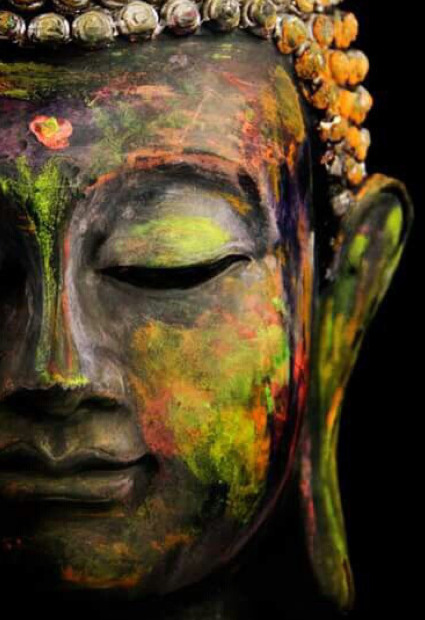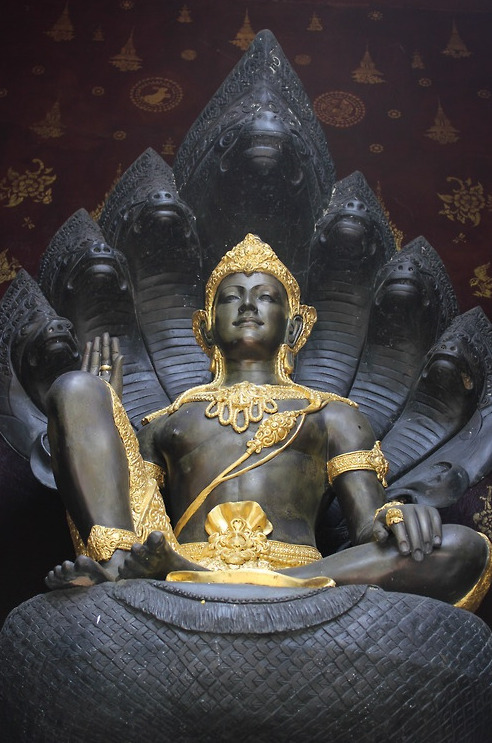Photo

Château d'Azay-le-Ferron, Azay-le-Ferron, Indre département, France
714 notes
·
View notes
Text
The Wisdom of a Broken Heart
‘I was attending a talk by a Tibetan Buddhist monk at a local meditation center. he was young, not yet thirty, but already highly respected as a scholar and spiritual adept. After talking about overcoming obstacles such as depression and anxiety, he was asked about how we can manage our emotions in a world of ever-increasing danger and uncertainty, how to cope with feelings of paralyzing dread about our safety and the future of the planet. The monk said, “When you are filled with fear, anxiety, or other difficult emotions, the first thing you should always do is make friends with them.” Rather than fighting off unpleasant feelings, it is always best to soften, open, and invite them. Fighting wastes valuable time. Allowing them acknowledges the reality of that particular moment and makes it easier to address your circumstances intelligently. For example, if you’re walking down a dark street trying to pretend you’re not afraid, you might miss the valuable signals fear offers you when you tune in and open to it.
And so it is with a broken heart, or any other problem, really. You may have been taught to attack a problem when you encounter it, either by trying to fix it right away or else eradicating it. I’m not suggesting that this is never a good idea, but there is another option which is not often thought of, which is to extend the hand of friendship to your situation. This is an extraordinary thing to do. Making friends with your broken heart, instead of trying to mend it or banish it, begins by simply making room for it to exist. You could even invite it to sit down with you, since you’ve probably been hating it or trying to ignore it. When grief and disappointment threaten to overwhelm you, instead of bemoaning them, turning away, or shrinking in fear of them, you could feel them. Instead of trying to shout them down, either by talking yourself out of what you’re feeling (It’s all his fault, anyway), making up a story about what it all means (I always attract the wrong guys), or collapsing on the couch with a bottle of gin (to deaden the pain), invite in your feelings and get to know them…
This process is really, really hard, so you need to appreciate yourself and what you are going through. So many problems result from the inability simply to be kind to yourself. Please develop some sympathy for yourself, which is different from self-pity or self-indulgence. Imagine if you knew that your best friend or your child or your mom was going through what you are experiencing - wouldn’t your heart ache for her? Wouldn’t you feel that if only there were something you could do to help, you would do it? Wouldn’t you think about her night and day with kindness, hoping for her to find peace?
Ask yourself honestly: have you felt these things about yourself?
If you have, that is wonderful; you are a great friend. If you haven’t, you could try to offer kindness to yourself.’
- Susan Piver, The Wisdom of a Broken Heart: An Uncommon Guide to Healing, Insight and Love.
130 notes
·
View notes
Text
The Buddha’s Words on Loving-Kindness
‘This is what should be done
By one who is skilled in goodness
And one who knows the path of peace:
Let them be able and upright,
Straightforward and gentle in speech.
Humble and not conceited,
Contented and easily satisfied.
Unburdened with duties and frugal in their ways,
Peaceful and calm, and wise and skillful,
Not proud and demanding in nature.
Let them not do the slightest thing
That the wise would later reprove.
Wishing: In gladness and in safety,
May all beings be at ease.
Whatever living beings there may be,
Whether they are weak or strong, omitting none,
The great or the mighty, medium, short, or small,
The seen and the unseen,
Those living near and far away,
Those born and to-be-born,
May all beings be at ease!
Let none deceive another,
Or despise any being in any state.
Let none through anger or ill-will
Wish harm upon another.
Even as a mother protects with her life
Her child, her only child,
So with a boundless heart
Should one cherish all living beings:
Radiating kindness over the entire world
Spreading upward to the skies,
And downward to the depths;
Outward and unbounded,
Freed from hatred and ill-will.
Whether standing or walking, seated or lying down,
Free from drowsiness,
One should sustain this recollection.
This is said to be the sublime abiding.
By not holding to fixed views,
The pure-hearted one, having clarity of vision,
Being freed from all sense desires,
Is not born again into this world.’
- The Metta Sutta, from Kathleen McDonald, Awakening the Kind Heart: How to Meditate on Compassion.
51 notes
·
View notes
Text
Simply Stop
“As I see it, there isn’t much to do. Just be ordinary - put on your robes, eat your food, and pass the time doing nothing.”
- Master Linji, Teaching 14
‘In Master Linji’s time, some Buddhist terms were used so often they became meaningless. People chewed on terms like “liberation” and “enlightenment” until they lost their power. It’s no different today. People use words that tire our ears. We hear the words “freedom” and “security” on talk radio, television, and in the newspaper so often that they’ve lost their effectiveness or their meaning has been distorted. When words are overused, even the most beautiful words can lose their meaning. For example, the word “love” is a wonderful word. When we like to eat hamburger, we say, “I love hamburger.” So what’s left for the meaning of the word “love”?
It’s the same with Buddhist words. Someone may be able to speak beautifully about compassion, wisdom, or non-self, but this doesn’t necessarily help others. And the speaker may still have a big self or treat others badly; his eloquent speech may be only empty words. We can get tired of all these words, even the word “Buddha.” So to wake people up, Master Linji [Japanese Rinzai] invented new terms and new ways of saying things that would respond to the needs of his time.
For example, Master Linji invented the term “businessless” person, “the person who has nowhere to go and nothing to do. This is the ideal example of what a person could be. In Therevada Buddhism, the ideal person was the arhat, someone who practiced to attain his own enlightenment. In Mahayana Buddhism, the ideal person was the bodhisattva, a compassionate being who. on the path of enlightenment, helped others.
According to Master Linji, the businessless person is someone who doesn’t run after enlightenment or grasp at anything, even if that thing is the Buddha. This person has simply stopped. She is no longer caught by anything, even theories or teachings. The businessless person is the true person inside each one of us. This is the essential teaching of Master Linji.
When we stop and be truly alive in the present moment, we are in touch with what’s going on within and around us. We aren’t carried away by the past, the future, our thinking, ideas, emotions, and projects. Often we think that our ideas about things are the reality of that thing. Our notion of the Buddha may just be an idea and may be far from reality. Buddha is not a reality that exists outside of us, but is our own true nature. The Buddha outside ourselves was a human being who was born, lived, and died. For us to seek such a Buddha would be to seek a shadow, a ghost Buddha, and at some point our idea of Buddha would become an obstacle for us.
Master Linji said that when we meet the ghost Buddha, we should cut off his head. Whether we’re looking inside our outside selves, we need to cut off the head of whatever we meet, and abandon the views and ideas we have about things, including our ideas about Buddhism and Buddhist teachings. Buddhist teachings are not exalted words and scriptures existing outside us on a high shelf in the temple, but are medicine for our ills. Buddhist teachings are skillful means to cure our ignorance, craving, and anger, as well as our habit of seeking things outside and not having confidence in ourselves.
Insight can’t be found in sutras, commentaries, verbal expression, or -isms. Liberation and awakened understanding can’t be found by devoting ourselves to the study of the Buddhist scriptures. This is like trying to find fresh water in dry bones. Returning to the present moment, using our clear mind which exists right here and now, we can be in touch with liberation and enlightenment, as well as the Buddha and the patriarchs as living realities in this moment.
The person who has nothing to do is sovereign unto herself. She doesn’t need to put on airs or leave a trace behind. The true person is an active participant, engaged in her environment while remaining unoppressed by it. Although all phenomena are going through the various appearances of birth, abiding, changing, and dying, the true person doesn’t become a victim of sadness, happiness, love or hate. She lives in awareness as an ordinary person, whether standing, walking, lying down, or sitting. She doesn’t act a part, even the part of a great Zen master. This is what Master Linji means by “being sovereign wherever you are using that place as your seat of awakening.”
We may wonder, “If a person has no direction, isn’t yearning to realize an ideal, doesn’t have an aim in life, then who will help living beings be liberated, who will rescue those who are drowning in the ocean of suffering?” A Buddha is a person who has no more business to do and isn’t looking for anything. In doing nothing, in simply stopping, we can live freely and true to ourselves and our liberation will contribute to the liberation of all beings.’
- Thich Nhat Hanh, Nothing to Do, Nowhere to Go.
47 notes
·
View notes
Text
Love and Commitment
‘True love includes the sense of responsibility, accepting the other person as he is, with all his strengths and weaknesses. If we like only the best things in the person, that is not love. We have to accept his weakness and bring our patience, understanding, and energy to help him transform. The expression “long-term commitment” helps us to understand the word love. In the context of true love, commitment can only be long-term. “I want to love you. I want to help you. I want to care for you. I want you to be happy. I want to work for happiness. But just for a few days.” Does this make sense? We are afraid to make a commitment. We want freedom. But we have to make a long-term commitment to love our son deeply and help him through the journey of life as long as we are alive. We can’t just say, “I don’t love you anymore.” When we have a good friend, we also make a long-term commitment. We need her. How much more so with someone who wants to share our life, our soul, our body. The phrase “long-term commitment” cannot express the depth of love, but we have to say something so that people understand.’
- Thich Nhat Hanh, Teachings on Love.
222 notes
·
View notes
Text
The Paradoxical Nature of Change
‘The more I am willing to be myself in all this complexity of life and the more I am willing to understand and accept the realities in myself and in the other person, the more change seems to have been stirred up. It is a very paradoxical thing - that to the degree that each one of us is willing to be himself, then he finds not only himself changing; but he finds that other people to whom he relates are also changing.’
- Carl Rogers, On Becoming a Person.
149 notes
·
View notes










